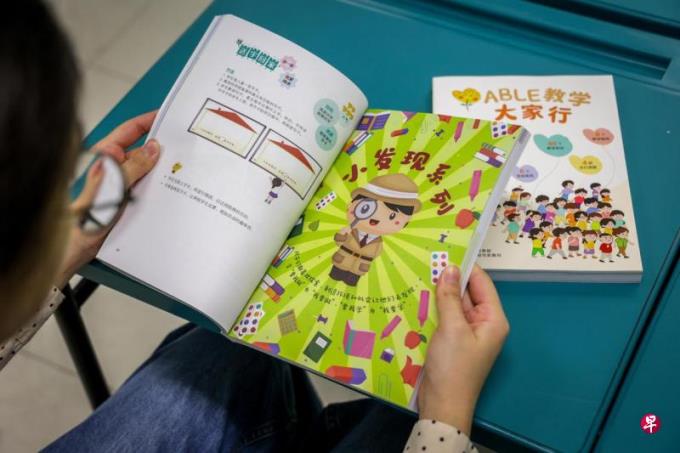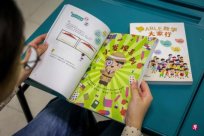
A few years ago, I met a mother in an interview.The other party knew that I was a reporter from the Chinese Newspaper, and asked me with great interest to make it to make her son's Chinese progress.I thought about it for a while and suggested to her that as long as the children are interested in Chinese books, no matter comics or other idle books, he can encourage him to read.The mother nodded now, but I noticed that her eyes showed doubts. It seemed to be asking: Can the child choose reading objects really improve his Chinese level?
The recent 2021 research data released by the Chinese Teaching and Research Center shows that Singapore primary and secondary school students have generally insufficient time to read Chinese books.46.4%of the senior students and 53.8%middle school students spend less than an hour to read extra -curricular Chinese readings per week.The survey also found that science fiction, adventure, detective stories, and comic books are particularly loved by primary and secondary students.
Back to the mother, maybe she felt that my milk -smelly girl just made a suggestion casually, and did not understand the deep consideration of cultivating a child.However, after many years later, I still believe that the suggestions at the time were right.After all, my enlightenment readings are comics. From the old master and Doraemon, I have a dream of crayons. These comics are accompanied by my growth.Later, I found that there was a full set of comic editions of Liao Zhaizhi at home. For a while, it was immersed in a strange world and could not extricate myself.
In my opinion, the word "mother tongue" itself implies it should be a natural and instinctual learning process.The masterpiece of mother tongue should be in a subtle way, and gradually accumulate through daily language communication and environmental stimuli.
The family environment undoubtedly plays a crucial role, but if the parents have limited language skills and cannot provide the ideal language environment, letting children come into contact with more readings and mediums of this language is also an effective method.However, if parents are excessively involved and they think that they can carefully select "nutritional" readings, they can provide systematic training and practice for their children's language learning. In fact, they only learn their mother tongue and downgrade them into mechanical deliberate foreign language learning.
In fact, not just some parents, I think Singaporea society is generally too utilitarian to mother tongue.This may stem from Singapore's long -term sense of worry.Whenever someone calls to improve the level of local Chinese, discussions will not help but focus on retaining culture and tradition, seize the opportunities provided by China, and serve as Chinese and Western bridges.However, when learning a language is too heavy, or when the language becomes a simple communication tool, its fun disappears, and learning and use becomes boring.This also means that once lack of external incentives, people can easily lose the motivation to use this language.
I don't deny it, it is difficult to master a language, especially Chinese.But as long as there is enough motivation, the process may not be discouraged.For example, Korean is not our mother tongue, but the attractiveness of Korean dramas and Korean popular culture allows many people to begin to understand Korean.Even if you are not in the class to study Korean, people can naturally understand some vocabulary and sentences by watching Korean dramas and variety shows.This shows that as long as a language can bring enough entertainment, mastering it will become smooth and natural.
Today's extra -curricular Chinese reading is no longer limited to comics, including black myth: Goku and other information platforms such as video games and Xiaohongshu.These emerging media allow students to contact more Chinese Chinese and Chinese, and gradually improve their language skills when they get interested entertainment content.I sincerely hope that while adjusting the education policy of mother tongue, Singapore can also make the mother tongue learning fading utilitarianism and more naturally into the life of the next generation.
(the author is a senior manager of the Chinese Media Group's regional strategy and cooperation)




